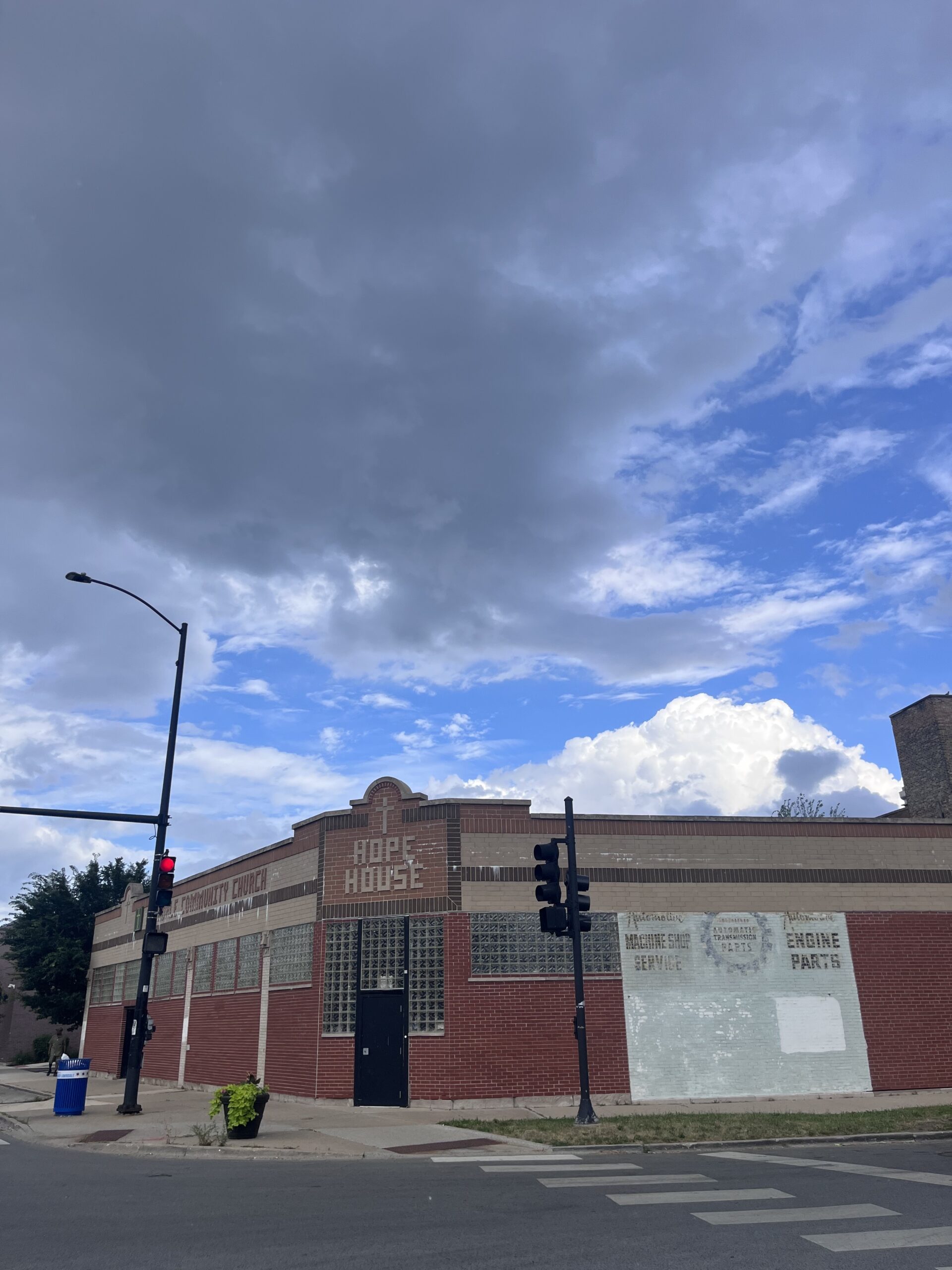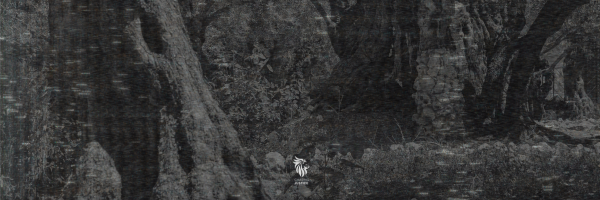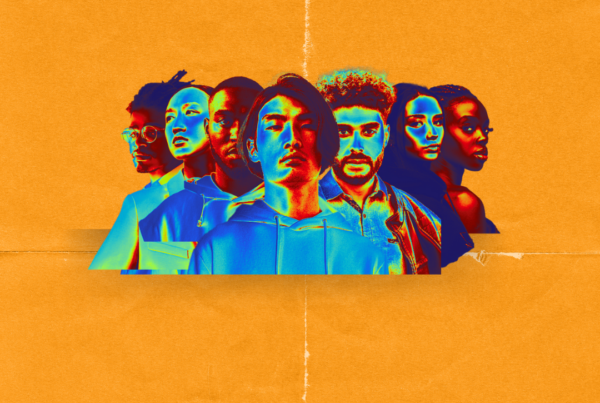At the beginning of July, I went on a pilgrimage in Chicago with Chasing Justice, learning the stories of injustice, struggle, and resilience – both past and present. It was an invitation to learn from the imaginative and faithful witness of communities of color collaborating to create an environment of flourishing.
When I returned to the U.S.I felt overwhelmed with emotion—but most of all I felt grief.
I was grieving saying goodbye to a community that held and formed me throughout the last three years. But I was also lamenting the present chaos of injustice happening inside my home country.
Even though I worked alongside a population directly affected by U.S. policies, I knew that challenges inside and outside of the U.S. are different.
So, I found myself in Chicago, alongside peers who each in their own way were looking to be encouraged, challenged, and inspired to live faithfully in the current reality in our country.
We spent much of our time getting to know the Lawndale community on the West side of Chicago. Here, my theological imagination was formed around this truth: hope – when connected to the Eternal Source of Life – transcends borders constructed by human hands.
A Modern History of Lawndale
Lawndale is a community that has dealt with particular tensions and violence across brown and black racial lines. North Lawndale is predominantly Black, while South Lawndale is predominantly Latinx.
This is not only a historical issue, but a division that continues to this day. Pastah J, a Black pastor, pastoring a predominantly Black community on the North side of Lawndale, and Pastor Paco, a Mexican American pastor, pastoring a Latinx community on the South side of Lawndale, helped us to understand both the challenges, as well as the ways they remain (as Pastah J says) addicted to hope.
In 2022, when the federal government began bussing migrant families (recently arrived to the US) from Texas to Chicago, the city saw a swell of people on the streets. Most of the families were from Venezuela. Pastor Paco and Pastah J, longtime friends and fellow co-laborers for peace and justice in the Lawndale neighborhood, got together as they saw the number of families on the streets increase by the bus load.
They decided to convert a space that they had long used as a rehabilitation center, called Hope House, or “Casa Esperanza” in Spanish, into a temporary shelter for migrant women and children.
As you might remember, last year I lived on the Northern border of Costa Rica, working with migrant families at a shelter and dining hall called Casa Esperanza.
I couldn’t believe that I had come across another Casa Esperanza that served the same population, maybe even some of the same families that I had come to know in 2024.
It was such a clear and beautiful picture of people taking bold steps to care for their neighbor, guided by a vision of collective flourishing. It reminded me of something I often found myself reflecting on during my time at the border – the lies of empire and the important work of uprooting those narratives.
I heard the raging sounds of scarcity that echoed from one border city to the next, after the US Southern border closed in January 2025 and the executive ‘stop-work’ orders that cut humanitarian aid funding.
Beyond Scarcity in a Capitalist Society
The work of uprooting a narrative of scarcity is hard, intentional, internal and communal.
The work that I saw Pastah J and Pastor Paco doing hand in hand in Chicago was a tangible reminder that there are many communities that have chosen to live according to a narrative of abundance.
In Chicago, Pastah J shared that Lawndale had a legacy of justice work, being the neighborhood that Martin Luther King Jr. lived in while in Chicago.
The streets hold stories of many battles against racism, white flight, lack of access to resources, and injustice. As he worked elbow to elbow with other community members to welcome these new migrant families, he recognized that it was vital that these new families understood the history of town and the legacy that the streets hold.
Pastor Paco agreed that it would be valuable for these new families to hear from Pastah J, to understand both the past and ongoing struggles against injustice, particularly of the Black community.
However, the work didn’t stop there. As Pastor Paco shared about his community in South Lawndale, and his historically predominantly Mexican and Mexican-American congregation, we recognized that he also found himself with some unique challenges in his community.
For many Mexican nationals, years, sometimes decades go by, while trying to obtain residency or citizenship after being undocumented. Language and cost barriers have been significant factors.
When the Biden administration implemented humanitarian parole for people from Venezuela, Nicaragua, Cuba and Haiti, it allowed people to enter the country with documents. This program didn’t create a direct path forward toward residency or citizenship, but it did temporarily allow people to enter the country with documents.
Imagine waiting decades in an agonizingly slow process in the immigration system only to watch Venezuelan nationals have a seemingly expedited process through the parole program implemented by Biden.
The sinking feeling of watching other people seemingly receive documentation or access to resources that you have long waited for.
Pastor Paco’s work, as a Mexican American pastoring a historically Mexican congregation with new Venezuelan families, was to help everyone realize that if one part of the body suffers, all suffer (1 Corinthians 12:26).
How Flourishing and Diversity Go Hand in Hand
The Lawndale community has worked hard to change a divisive narrative that maintains the lines of North and South, Black and Brown, rooted in a mindset of scarcity. These leaders know that if one is not flourishing, then none are flourishing. If one part of the body suffers, then we all suffer (1 Corinthians 12:26), whether it is our neighbor on the Southside or our neighbor south of the border.
From the border town of Los Chiles in Northern Costa Rica, to North Lawndale, to South Lawndale —from one Casa Esperanza at the border in Costa Rica to another in the heart of Chicago—I am reminded that we are all one.
We must recognize and celebrate our diversity: racially, ethnically, culturally, linguistically. But we must also be able to recognize our oneness.
This is the paradox of the gospel: we see the tension of diversity and unity bound up in the vision of collective flourishing that is the Kingdom of God.
Empire will always tell us that flourishing is the result of another’s loss and that the easiest way to win is to bind ourselves with other people who look like us, think like us, and live like us.
But the gospel makes clear that true flourishing is collective flourishing. When we look to Creation, we see that ecosystems flourish when different organisms can benefit from helping one another.









